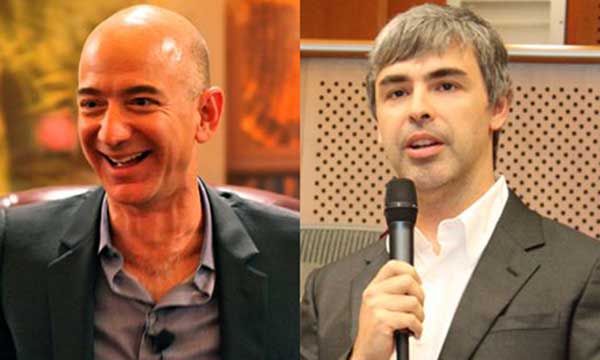Bored with the regular “Tell me about yourself” and “5 years down the line” questions in an interview set-up?
Well, if you are bored of answering these questions, think how monotonous it might be for the hiring manager to repeat such questions to each and every candidate they meet for different profiles or sometimes even for the same job requirement.
These regular, structured set of questions also pose another difficulty for the recruiter – it becomes more complex understand the candidate’s behaviour, attitude towards work and the company, his/her psyche, values/qualities/abilities and of course, his/her seriousness and commitment towards the job and the organization.
A meticulous online research and writing sown responses to commonly asked questions in an interview can land them with the job, where the recruiter is not even able to gauge the candidate’s weaknesses and flaws in the mind-set.
But before job-seekers become overjoyed at the proposition, let me tell you that even e-commerce companies like Amazon, search engine based organizations like Google and Health companies, big corporate houses as well as Apple have framed some challenging questions for the interviewee just to chalk out the candidate’s knowledge of the company, his/her leadership and team-building abilities, valued skills and behavioural psychology. This has definitely helped them in understanding the personality, disposition, cultural background and mentality of the person involved.
For example, a question by Larry Page at Google to one of his interviewees was “Teach me something I don’t know in the next 5 minutes” or the one asked by Amazon, “Tell the story of the last time you had to apologize to someone”. If you are wondering what good were these questions and how would something as simple as this could help these companies understand their candidates better, then let me tell you the one asked by Google was to measure how expressive, explanatory and elaborate the candidate’s thought process is. The question is not asked to test his/her knowledge on different subjects or even about a new technology that Larry Page might not have heard about; it rather says a lot about how passionately the candidate can communicate his/her ideas and concepts and if the person is willing to share his bit of learning. The question by Amazon on the other hand, would let the recruiter know how good you are at customer servicing – whether or not you would accept your mistake with honesty and humility to a client. If the candidate has the ability to induce a little humour and crack a joke at his/her own mistake in front of the client or creatively accepts his mistake, then this is sure to impress the recruiter.
A simple question on the candidate’s favourite book or movie or his/her idea of appreciation at work or even his/her favourite superhero and/or role model(s) can let the recruiter know much about the candidate’s personality as he/she gives further reasons to their answers and may even be creative at it. This can tell the recruiter a lot about if the candidate has an interesting thought-process, is creative, honest, imaginative, realistic or futuristic! Did you ever think about it?
As a recruiter, one should think about the qualities, skills and strengths you are looking forward to in a candidate and mould your questions accordingly. If, for instance, you require good team spirit or leadership abilities in the candidate, you need to ask him/her to describe leadership, mention some good successful teams and leaders and how would they treat someone who is not working upto the mark. Even questions like how they want their leader to be or a failed leadership goal or attempt or even their leadership skills if employed in a team and their conflict management techniques can let the recruiters figure out if the person is result-oriented, accepts constructive feedback, is adaptable to different situations, has the zest and willingness to lead and build concepts for a team or an individual to work upon.
There would be some candidates who would always be keen to learn, acquire and adapt more while there will always be some who would be the ‘know it all’ types. To distinguish between the two categories, it is important for the recruiter to ask questions based on candidate’s reading habits and choices, their presence in seminars and workshops, loopholes in the company and ways to eradicate them as well as their choice of books, newspapers, articles, magazines, journals, etc.
This would help you as a recruiter to understand a lot about the interviewee’s business acumen on the company, how much he/she has researched about the company before applying, the business tasks they would like to take on in your company if they were to be employed, what are their interests, aptitudes and motivations and even how often they update themselves.
Also, asking the candidate questions on the values s/he thinks should be there in an individual or a company, and questions based on the candidate’s assessment of the company’s values, missions and visions, as well as those on his/her organizational skills and job role expectations would enable the recruiter to understand if s/he is the best fit according to the company culture, work ethics and organizational values.
As a recruiter, you are free to turn the tables around to know about what questions the candidate might have, what all s/he does not want for his/her career and letting them find out new attributes about themselves.
So questions that you have been reading till now about film actors and actresses could be next asked to you! Be ready to answer them the most innovative and creative way you can!
Well, for instance, what would you answer to this: “If you have food and water to survive on an uninhibited island, what would you want to carry with you?” or even better, “Have you ever taught the older generation the workings of a computer. If not, how would you try?”








